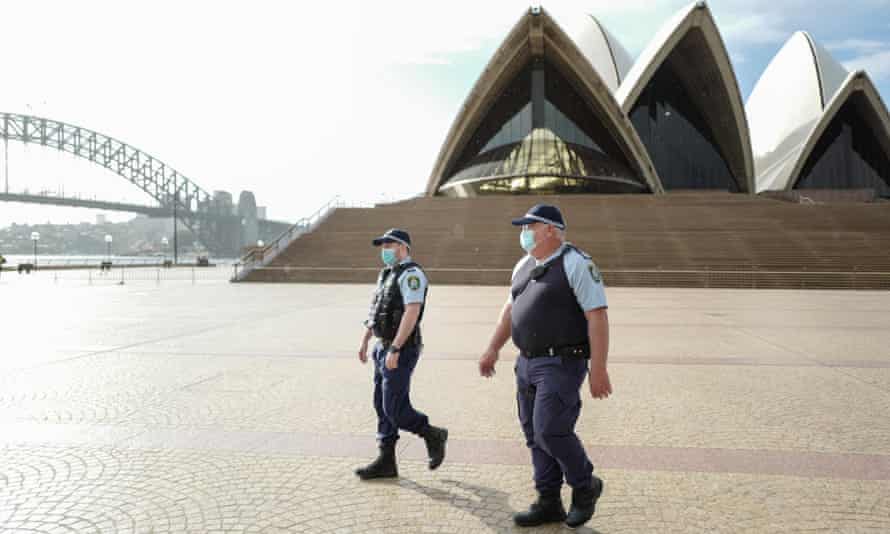New South Wales announces 136 new local Delta cases with Sydney under the strictest lockdown measures it has experienced

Australia’s most populous state has declared a “national emergency” as it struggles to contain a record-breaking surge of the Delta variant of Covid-19 amid a lockdown affecting half the country.
The state of New South Wales announced 136 new locally-acquired cases of Covid-19 on Friday, with continued community transmission among essential workers, including in supermarkets and pharmacies.
More than a year after the start of the Covid-19 pandemic, NSW has broken records for daily case numbers on consecutive days, and the city of Sydney is under the strictest lockdown measures it has ever experienced.
More than 13 million Australians – approximately half the country’s population – are currently under some form of lockdown or restriction, including the states of Victoria and South Australia.
On Friday, the NSW premier, Gladys Berejiklian, called for an urgent mass vaccination program in parts of Sydney, and warned that the city’s outbreak would endanger the entire country. Despite restrictions that have closed restaurants, pubs and bars, general retail shops, schools, offices, gyms and sport, and limited the reasons that people can leave the house, Covid numbers continue to rise.
Berejiklian said spread was occurring in essential workplaces like supermarkets and pharmacies, despite mandatory Covid tests every three days for essential workers in the worst-affected areas.
Only 12% of the Australian population has been fully vaccinated, and it ranks last out of 38 OECD countries for vaccination rates.
The state’s chief health officer, Dr Kerry Chant, said that supermarket, logistics and health workers in south-west Sydney – many of whom are younger than 40 – should be vaccinated as a priority.
Currently, the general population under 40 are ineligible to be vaccinated, and the federal government has been criticised for not securing enough supplies of the Pfizer vaccine and other mRNA vaccines.
The prime minister, Scott Morrison, said on Friday he would seek to provide more vaccine doses to NSW when possible, but not at the expense of other states and territories.
“We’re not going to disrupt the vaccination program around the rest of the country,” Morrison told reporters in Canberra after one of his regular meetings with state and territory leaders.
But in an attempt to ensure more people in NSW received their first dose of the Pfizer vaccine as soon as possible, Morrison revealed that clinics in the state would extend the gap to six weeks before people had the second dose.
When asked whether he agreed with his NSW colleague’s description of the current situation as a national emergency, Morrison said he had been treating Covid-19 in that way since the pandemic began early last year.
Australia, which was previously a world leader in the elimination of Covid, with strict border controls and months of zero community-acquired cases, has been plunged into various forms of lockdown sparked by cases of Delta variant.
On Friday, the state of Victoria reported 14 new locally acquired cases and South Australia recorded two over the previous 24 hours.
New Zealand announced it would shut down its quarantine-free travel bubble with Australia for the next two months, saying that the NSW outbreak was “clearly not under control”.
Neighbouring countries in Asia such as Indonesia and Thailand are also battling Delta outbreaks that are causing far higher case and death totals.
Indonesia reported 49,500 new cases and 1,449 deaths on Thursday, a record since the pandemic began. Thailand reported 13,655 new cases and 87 deaths, also a record.
In Australia, Morrison publicly apologised for the slow pace of the vaccination rollout on Thursday.
He was “not happy” with the state of the vaccination program, and attributed this to early disruptions to the country’s AstraZeneca supply and to changes in the advice given by the independent Australian Technical Advisory Group on Immunisation (Atagi) on who should receive the AstraZeneca vaccine.
Atagi said in April that Pfizer was “preferred” to AstraZeneca for those under 50 due to a very low risk of blood clotting. This advice was later updated to include people under 60.
However, the advisory group also said at the time that AstraZeneca could be administered to younger people when “the benefits are likely to outweigh the risks” and “the person has made an informed decision”.
The group said: “While Australia currently has very low or no community transmission of Covid-19, this could change, particularly in the context of high global transmission rates, including of new variants of the virus.
“The risk of serious disease and death in Australia remains, even as border controls and other measures continue.”
